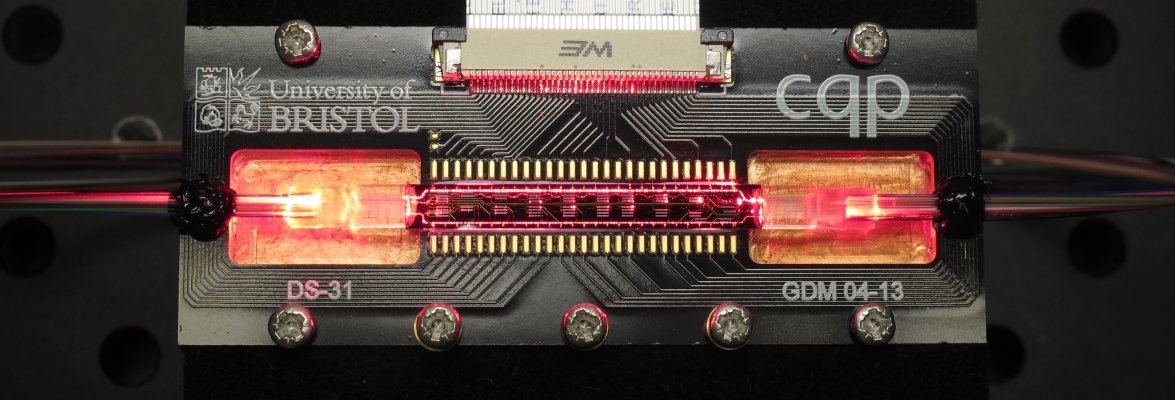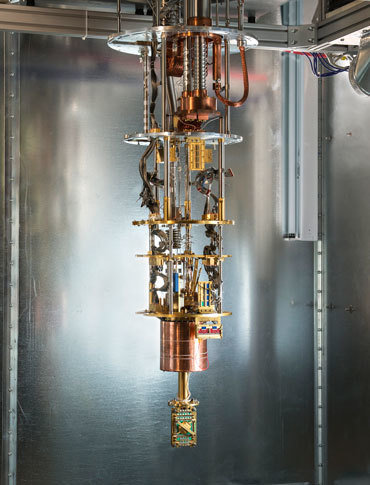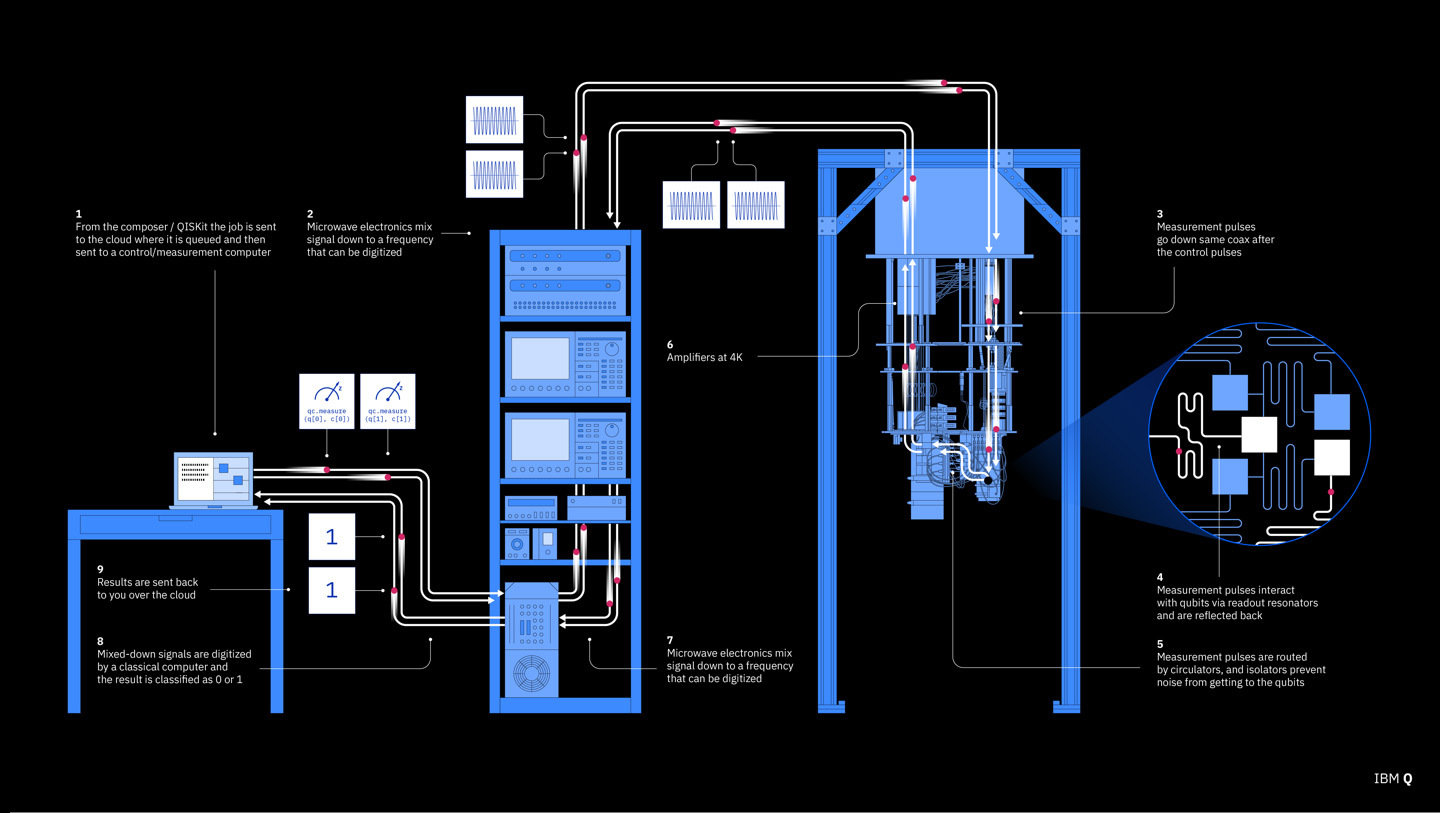Quantum Computing and Processors
Presented by David Nader
"Nature isn’t classical dammit, and if you want to make a simulation of Nature you better make it quantum mechanical, and by golly it’s a wonderful problem because it doesn’t look so easy"
~Feyman
Terminology
History
1980
1981
1985
Physicist Paul Benioff suggests quantum mechanics could be used for computation.
Nobel-winning physicist Richard Feynman, at Caltech, coins the term quantum computer.
Physicist David Deutsch, at Oxford, maps out how a quantum computer would operate, a blueprint that underpins the nascent industry of today.
1980
1981
1985
1994
2007
Physicist Paul Benioff suggests quantum mechanics could be used for computation.
Nobel-winning physicist Richard Feynman, at Caltech, coins the term quantum computer.
Physicist David Deutsch, at Oxford, maps out how a quantum computer would operate, a blueprint that underpins the nascent industry of today.
Mathematician Peter Shor, at Bell Labs, writes an algorithm that could tap a quantum computer’s power to break widely used forms of encryption.
D-Wave, a Canadian startup, announces a quantum computing chip it says can solve Sudoku puzzles, triggering years of debate over whether the company’s technology really works.
1980
1981
1985
1994
2007
2013
2014
Physicist Paul Benioff suggests quantum mechanics could be used for computation.
Nobel-winning physicist Richard Feynman, at Caltech, coins the term quantum computer.
Physicist David Deutsch, at Oxford, maps out how a quantum computer would operate, a blueprint that underpins the nascent industry of today.
Mathematician Peter Shor, at Bell Labs, writes an algorithm that could tap a quantum computer’s power to break widely used forms of encryption.
D-Wave, a Canadian startup, announces a quantum computing chip it says can solve Sudoku puzzles, triggering years of debate over whether the company’s technology really works.
Google teams up with NASA to fund a lab to try out D-Wave’s hardware.
Google hires the professor behind some of the best quantum computer hardware yet to lead its new quantum hardware lab.
1980
1981
1985
1994
2007
2013
2014
2016
2017
Physicist Paul Benioff suggests quantum mechanics could be used for computation.
Nobel-winning physicist Richard Feynman, at Caltech, coins the term quantum computer.
Physicist David Deutsch, at Oxford, maps out how a quantum computer would operate, a blueprint that underpins the nascent industry of today.
Mathematician Peter Shor, at Bell Labs, writes an algorithm that could tap a quantum computer’s power to break widely used forms of encryption.
D-Wave, a Canadian startup, announces a quantum computing chip it says can solve Sudoku puzzles, triggering years of debate over whether the company’s technology really works.
Google teams up with NASA to fund a lab to try out D-Wave’s hardware.
Google hires the professor behind some of the best quantum computer hardware yet to lead its new quantum hardware lab.
IBM puts some of its prototype quantum processors on the internet for anyone to experiment with, saying programmers need to get ready to write quantum code.
Startup Rigetti opens its own quantum computer fabrication facility to build prototype hardware and compete with Google and IBM.

University of Bristol Q-Processor
- 2 qubits

ICE CHIPS D-Wave’s quantum chip must be cooled to temperatures near absolute zero using a dilution refrigerator (shown).
- 2000 qubits-annealing (optimization problems)

Bristlecone is Google’s newest quantum processor (left). On the right is a cartoon of the device: each “X” represents a qubit, with nearest neighbor connectivity.
- 72 qubits
NISQ era
Noisy Intermediate-Scale Quantum (NISQ)
by
John Preskill
Q-Computers superpassing classical computers
- Quantum algorithms for classically intractable problems (e.g. finding the prime factors of large composite int)
- Complexity theory arguments (new complexity theory)
- Grover's algorithm
- No known classical algorithm can simulate a quantum computer
Noise-resilient quantum circuits
- ...quantum error correction to extend the size of the computations ...

IBM Q

References
- [NISQ] https://arxiv.org/abs/1801.00862
- https://www.wired.com/story/wired-guide-to-quantum-computing/
- https://www.sciencenews.org/article/quantum-computer-d-wave-simulations
- [IBM] https://www.research.ibm.com/ibm-q/learn/what-is-quantum-computing/
- [Google] https://ai.googleblog.com/2018/03/a-preview-of-bristlecone-googles-new.html
Quantum
By David Nader Palacio
Quantum
- 358



